
下载亿题库APP
联系电话:400-660-1360

下载亿题库APP
联系电话:400-660-1360

请谨慎保管和记忆你的密码,以免泄露和丢失

请谨慎保管和记忆你的密码,以免泄露和丢失
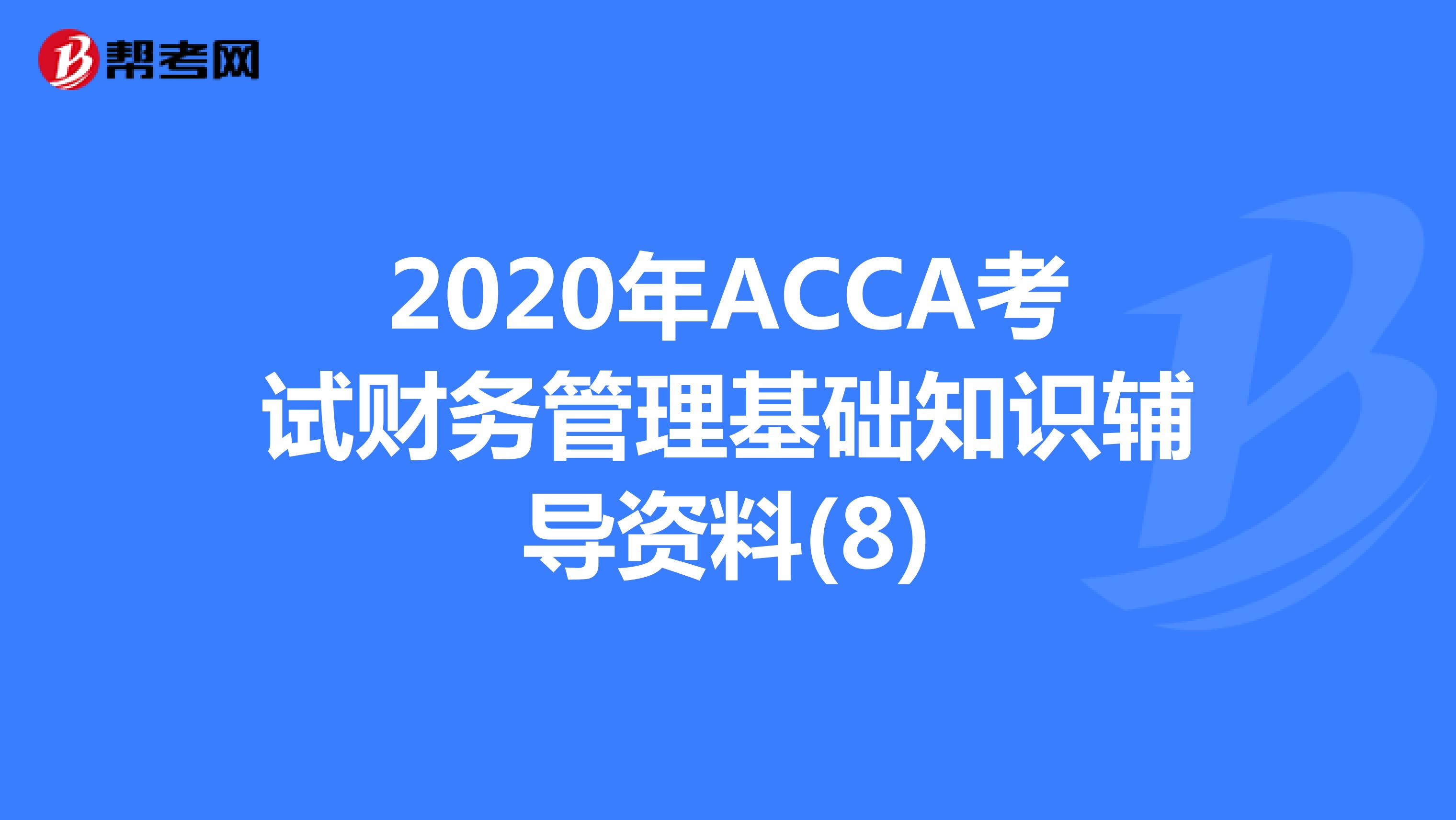
各位小伙伴注意了,今天帮考网为大家分享2020年ACCA考试财务管理基础知识辅导资料(8),供大家参考,希望对大家有所帮助。
Strategic planning in an age of turbulence
Responsive, robust and resilient
Kotler and Caslon address the problem of chaotic or turbulent environments. They suggest that organizations need to plan to be:
1) Responsive – the ability to react quickly to change
2) Robust – the ability to withstand stresses and to cope well with change without losing functionality
3) Resilient – the ability to rebound to a position of success.
Consider human resources management when there is a severe and unexpected turndown in business. HR management would need to be:
1) Responsive – it might be necessary to block all hiring, to ban overtime, to freeze pay and to make redundancies
2) Robust – care is needed when choosing who should go so as not to jeopardize functionality; care is also needed to preserve motivation and to try to keep good staff
3) Resilient – instead of redundancies, it might be better to ask employees to move to shorter working weeks so that valuable talent is not lost forever. Then, when the economy recovers, the company is ready to bounce back immediately without a delay for recruitment.
Practical approaches
Flexibility
Responsiveness, robustness and resilience are really an expansion of the concept of flexibility. It is essential to try to build flexibility into any strategic plan – even in relatively stable conditions. One of the standard criticisms of the rational planning approach is that it lacks or inhibits flexibility (though that is more a criticism of how the plan is used rather than a criticism of planning itself). Examples of building in flexibility include:
1) Leaving headroom in any financing plan. For example, arranging lines of credit
2) Having break-clauses or extension options in lease agreements
3) Building in the ability to upgrade or extend operations
4) Use of currency options
5) Buying from a range of suppliers. For example, some companies that relied on just-in-time inventory had problems after the Japanese earthquake because their supplies were quickly exhausted. Now manufacturers try to build flexibility into their supply chains
1) stand-by and disaster recovery plans for IT systems
2) A mix of permanent and sub-contracting staff
3) Pilot operations to gain experience in new ventures. If successful, the operations can be extended and can make use of experience gained
4) Joint ventures to spread risk and finance, and to make use of a wide range of expertise.
以上就是帮考网给大家带来的全部内容,相信小伙伴们都了解清楚。预祝大家在ACCA考试中取得满意的成绩,如果想要了解更多关于ACCA考试的资讯,敬请关注帮考网!
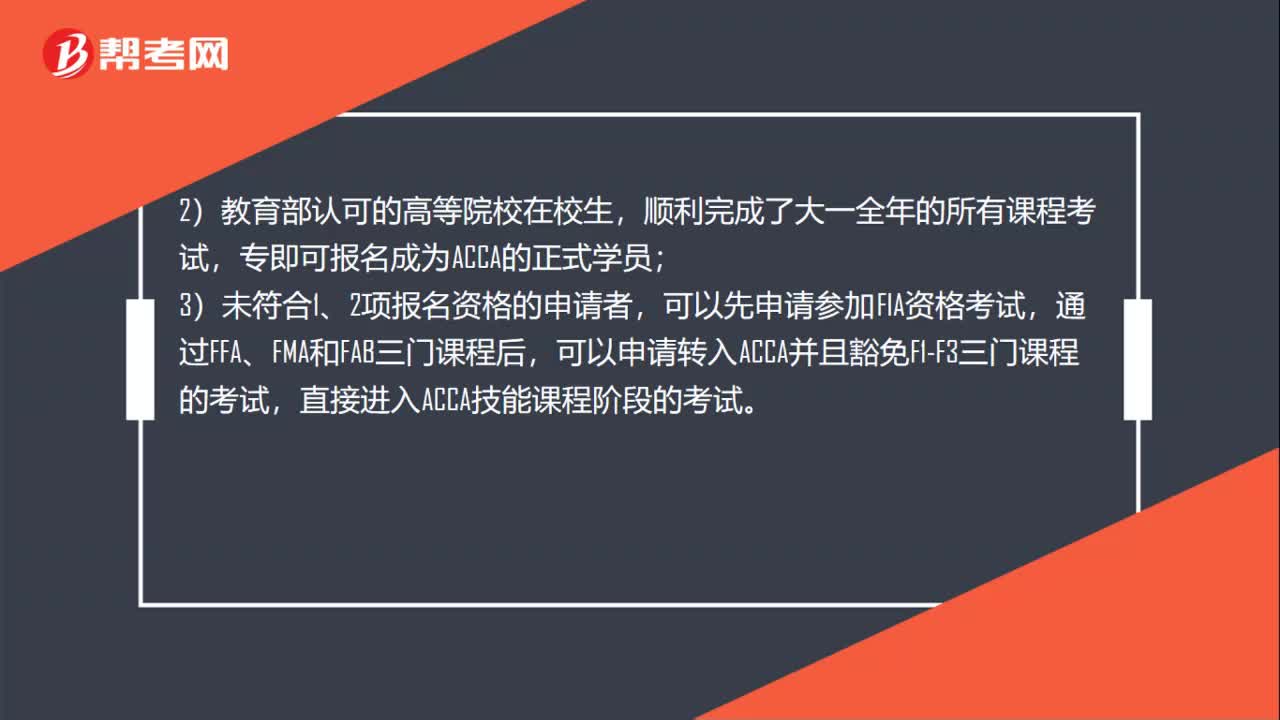 63
63ACCA报考有年龄限制吗?:ACCA报考有年龄限制吗?ACCA报考是没有年龄限制的,报名参加ACCA考试,1.凡具有教育部承认的大专以上学历,即可报名成为ACCA的正式学员;顺利完成了大一全年的所有课程考试,专即可报名成为ACCA的正式学员;3.未符合1、2项报名资格的申请者,可以先申请参加FIA资格考试,通过FFA、FMA和FAB三门课程后,可以申请转入ACCA并且豁免F1-F3三门课程的考试。
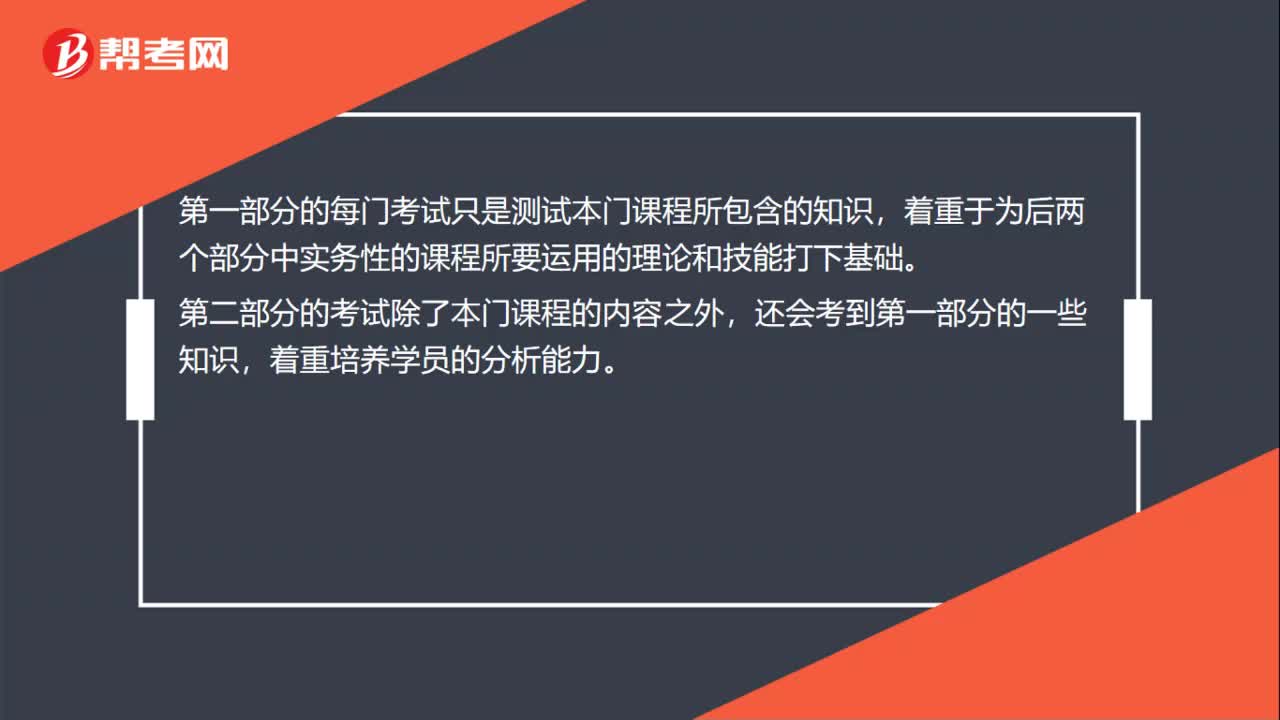 80
80ACCA考试难度大吗?:ACCA考试难度大吗?ACCA考试的难度是以英国大学学位考试的难度为标准,第一(f1-f3)、第二部分(f4-f9)的难度分别相当于学士学位高年级课程的考试难度,第三部分p阶段的考试相当于硕士学位最后阶段的考试。第一部分的每门考试只是测试本门课程所包含的知识,着重于为后两个部分中实务性的课程所要运用的理论和技能打下基础。第二部分的考试除了本门课程的内容之外。
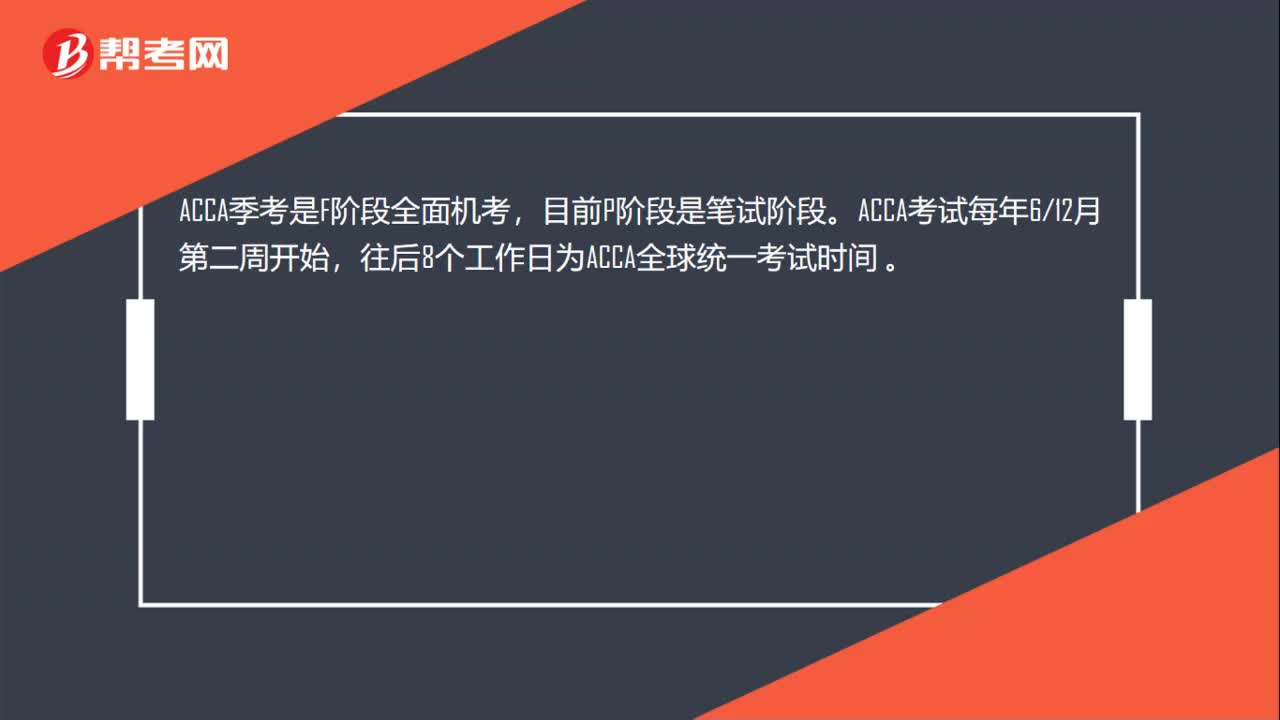 25
25ACCA每年的考试时间是什么时候?:ACCA每年的考试时间是什么时候?ACCA季考是F阶段全面机考,目前P阶段是笔试阶段。ACCA考试每年612月第二周开始,往后8个工作日为ACCA全球统一考试时间。
 01:03
01:032020-06-04
 01:20
01:202020-06-04
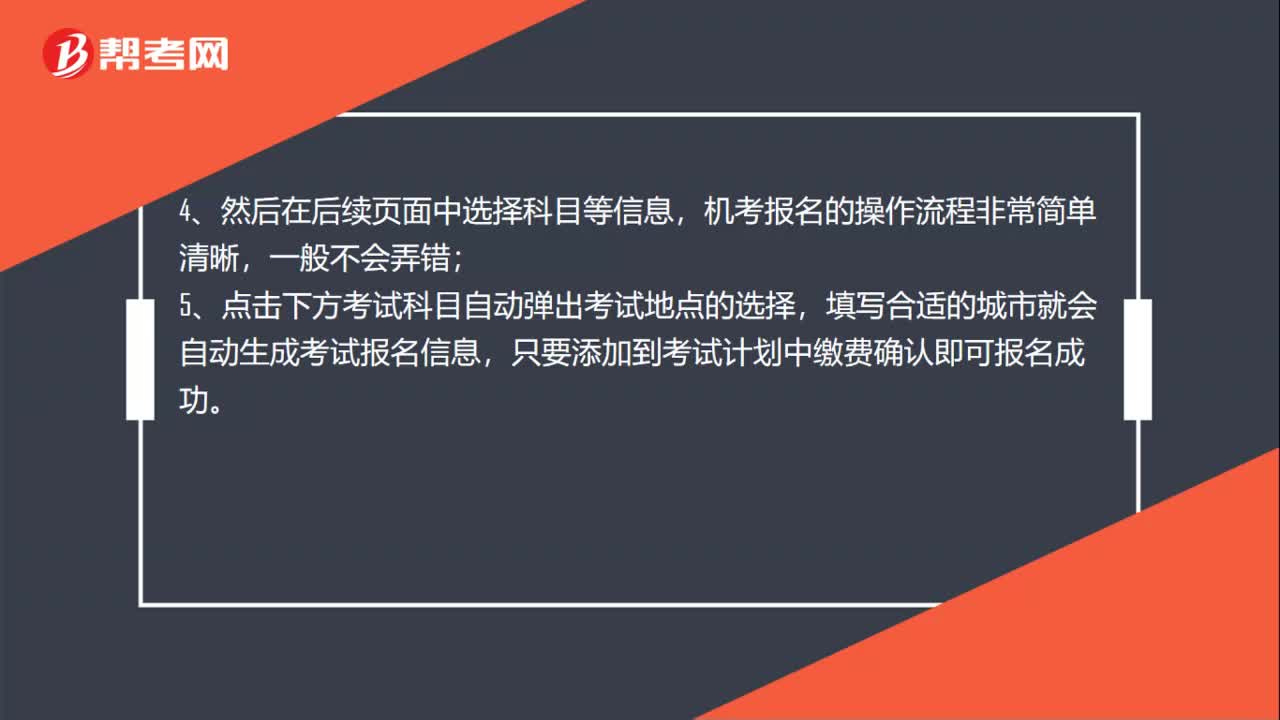 01:21
01:212020-06-04
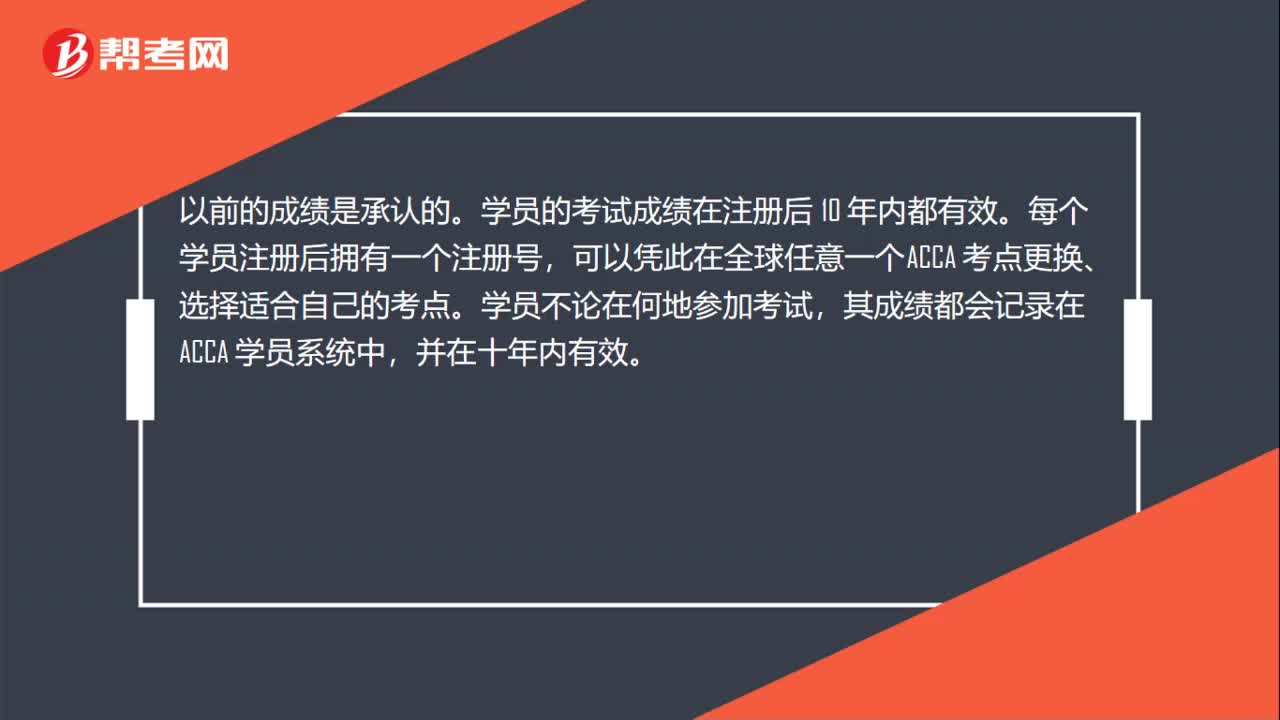 00:34
00:342020-06-04
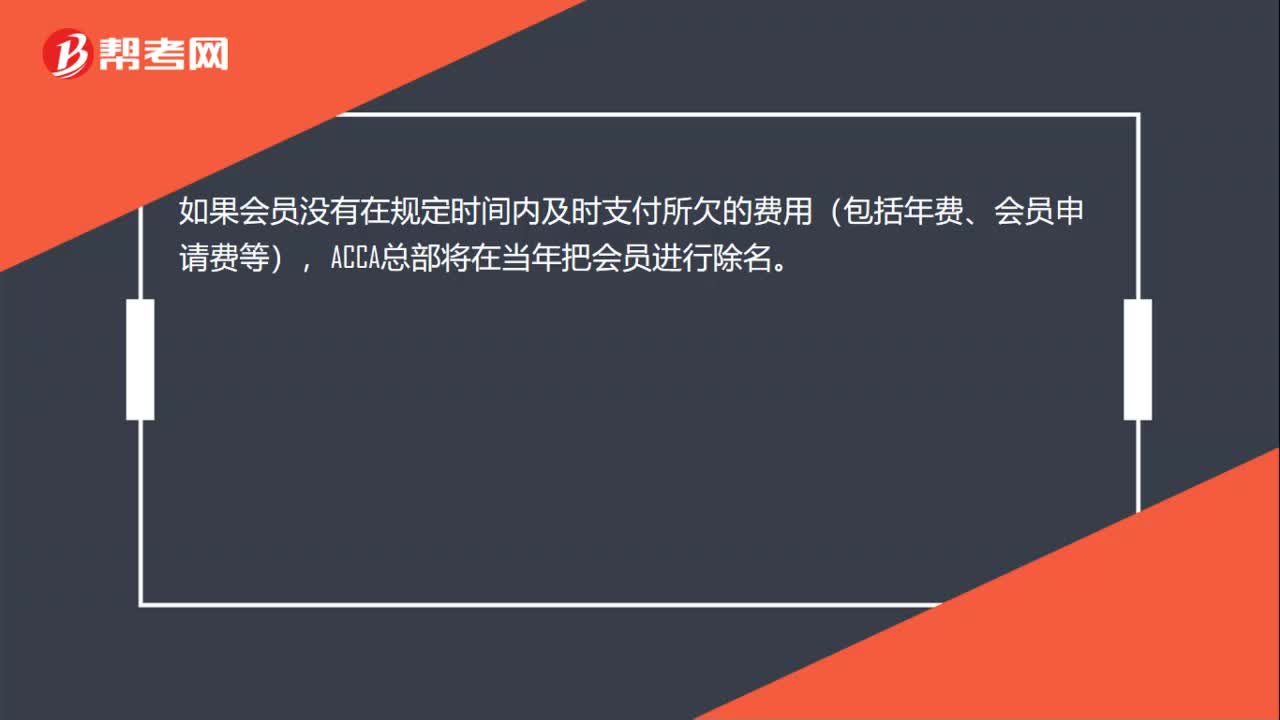 00:19
00:192020-06-04

微信扫码关注公众号
获取更多考试热门资料